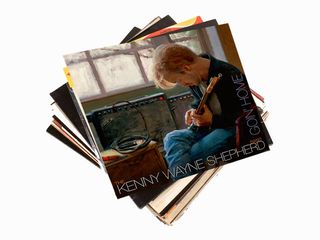
Kenny Wayne Shepherd talks new album Goin' Home track-by-track
On his eighth studio album, Goin' Home, Kenny Wayne Shepherd takes listeners on a retrospective journey of some of the songs and artists who first ignited his love of the blues. The award-winning guitarist hadn't originally planned on tackling blues classics on his new disc, but a recent visit to his hometown of Shreveport, Louisiana, cemented his direction.
"Being back in Shreveport, I started reflecting on my life and career," Shepherd says. "I had these vivid memories of playing guitar in the living room of my house and listening to this music. I went full circle. So I thought, ‘The best place for me to do this record would be where it all began for me.’”
He didn't have too far to go. Blade Studios, built by and operated by longtime friend Brady Blade – a respected drummer and producer who has worked with Emmylou Harris, Steve Earle and Dave Matthews, among others – had become Shreveport's first state-of-the-art recording facility. Shepherd and his band (singer Noah Hunt, ex-Stevie Ray Vaughan and Double Trouble drummer Chris Layton, former Firm bassist Tony Franklin and keyboardist Riley Osbourn) parked their tour bus outside the studio and, during an 11-day stay, laid down 22 tracks.
“I wanted to stay true to the spirit of the original recordings," Shepherd explains, "so we recorded live and did a minimal amount of overdubs. We set up in the same room together, with drums bleeding into vocal mics, and guitar amps bleeding into drum mics. When you’re in that kind of situation, you have to try to get it right the first time, and that was a lot of fun, actually."
Overdubs were key when it came time to the album's guest stars, and Goin' Home boasts a mind-boggling collection of music greats: Ringo Starr, Joe Walsh, Warren Haynes, Keb' Mo', Robert Randolph, Fabulous Thunderbirds frontman Kim Wilson and the Rebirth Brass Band. "As you can imagine, it’s not easy getting so many fantastically talented people down to Shreveport during a short stay," Shepherd says. "They’re all really busy traveling and doing what they’re doing. So the easiest thing was to send the music to them to put their parts on.”
Starr, whom Shepherd has counted as a friend for the past 11 years, plays drums on the track Cut You Loose. "I was actually with Ringo in his home studio when he did his overdubs," says Shepherd. "What can I say about him? He’s a ridiculously talented drummer and about as legendary as you can get. To have him on my record is a huge honor."
He adds, "I'm thankful for everybody who took the time to play on the record. It was a great experience to share this music with everybody, and I'm really looking forward for my fans to hear what we did. These are songs that helped shape who I am. This is a pretty special album to me."
On the following pages, Shepherd runs down Goin' Home track-by-track. The album is now available in Europe - click here for order links. Goin' Home will be released in the US on May 19. You can pre-order the album at iTunes and Amazon.

Palace Of The King
“This was originally done by Freddie King. I thought about doing it, but then I brought Boogie Man to the table, which was also by Freddie King. Chris Layton said, ‘Hey, what about Palace Of The King.’ I told him I’d thought about it, but I wasn’t sure.
“From Chris’ perspective, being a drummer, this is a really great song to play. So I thought, ‘Hey, if somebody suggests something, let’s see where it could go.’ We cut it and it sounded great, so there you go. We’ve got the female background singers, and the Rebirth Brass Band are playing horns, so there’s a lot of moving parts – the whole thing just powers forward. It’s loaded with energy, and it's a killer opening track.”

Everything's Gonna Be Alright
“I’ve always been a big fan of Magic Sam, so much so that the song Somehow, Somewhere, Someway on my second record is a tribute to him, as far as how the guitar riff goes. It’s my version of a Magic Sam lick.
“I’ve always wanted to do Everything's Gonna Be Alright, but I could never find the right place on an album for it. When I set out to make this record, this song was first on my list. I just think that Magic Sam is one of those incredible guys who doesn’t get the recognition he deserves.
“The older I get, the more I’m drawn to positive blues music – songs that glorify life, love and women. This track is basically a guy professing his love to a woman and telling her everything’s gonna work out. That's the way he feels, and he's not afraid to say it out loud.
“On this song and a few others, I had Tony play upright bass. It gives the song more of an authentic, old-school sound. Willie Dixon wrote a lot of these songs back in the day, and he played upright bass on a lot of the records. There’s something about hearing an upright on some of these cuts – it just sounds right to me.”
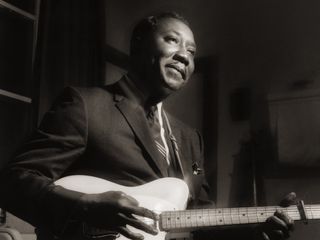
I Love The Life I Live
“Muddy Waters did this one. It’s a hot song. I have Kim Wilson on harmonica, and Joe Walsh takes the first guitar solo in the middle section and also the first section at the end of the song.
“This is another one of those positive blues numbers: ‘I love the life I live, and I live the life I love’ – it’s all right there. It’s about enjoying and appreciating life. The song’s a shuffle, and of course, I’ve got one of the best guys on the planet for that – Chris Layton.
“I think we really captured the Muddy Waters vibe, which was really important to me, as Muddy is one of my biggest blues heroes of all time.”
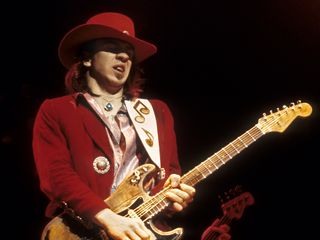
The House Is Rockin'
“Originally, I wasn’t going to do an SRV song. You know, it’s amazing to me that, 20 years into my career, some people can’t get beyond the influence that Stevie Ray Vaughan has had on me as an artist. So I didn’t want to deal with the haters who were going to say, ‘There’s only one SRV. Who are you to do his stuff?’ and on and on. I mean, that gets so old.
“Chris is the one who told me to do it. He said to me, ‘How can you put out a record with some of your biggest influences and not have an SRV song?’ And I thought, ‘You know, if Chris can say that, then I don’t care what anybody else thinks.’ It couldn’t have come from a greater source than a member of that band telling me to do a Stevie Ray Vaughan song. Everybody can kiss my ass if they have a problem with it. [Laughs]
“I wanted to go for something that wasn’t obvious. When people think SRV, they think Pride And Joy, Texas Flood and a few others, but I wanted to do The House Is Rockin’. We needed another uptempo song, so it fit. Chris loves it, I love it, and I can sing it pretty easily.
“The original version is perfect, I think, so we didn’t really change anything, although I did lengthen the solo section. Riley plays his own piano solo, but he doesn’t cop what [Double Trouble keyboardist] Reese [Wyans] did. When I do my solo, I start it off like Stevie, but then I go off and do my own thing. I resolve it in the same manner as Stevie, though, so it’s a real nod to him with a little of my own stuff.”
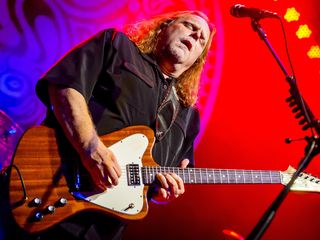
Breaking Up Somebody's Home
“The reason why we did this one was because of Warren Haynes. We did some shows together a couple of years ago, and this was one of the songs we jammed on together. It was Warren’s suggestion that we do it, and when I heard how we sounded I had to admit, ‘Wow, this really sounds awesome.’
“When we decided to do this record, I knew we had to try this song. I called Warren up and asked if he’d ever recorded it. He said that he hadn’t done a studio version, so I asked him if it would be OK for us to do it – and, of course, I asked him to sing and play guitar on it.
“Warren's the reason why this song is even on the record, so I’m glad that everything worked out and he’s on the track. He sounds unbelievable.”

You Done Lost Your Good Thing Now
“There’s so many other BB King songs we could have done – it's so hard to pick one. The original version of this song is on a record called Live At The Regal, and it’s just amazing.
“This is 100 percent my band, cut live in the studio in one take. It’s the first actual slow blues song that I’ve put on a record since Shame, Shame, Shame, with the exception of the 10 Days Out project. I think the fans have been waiting to hear us burn up a slow blues for a long time, so we gave it to them with this track.”
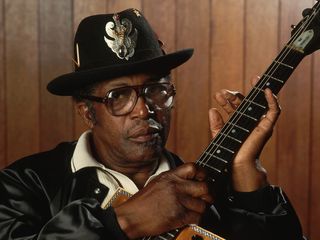
You Can't Judge A Book By The Cover
“I got to know Bo Diddley when I was 15 years old. The first time that I went on tour, I was opening up for BB King. It was my band, then Bo Diddley and then BB King. Bo didn’t bring a band out with him, so after our set, we’d come back out and play with him. I feel a real connection to him.
“Chris suggested this song because it’s one of the few Bo songs that don’t have that famous Bo Diddley beat. I love it. It’s got a great positive message and terrific energy – it just makes you feel good. Brady’s dad, Brady Sr. – he’s a pastor in Shreveport – he came to the studio to check out what was going on. He announced to everybody that he was going to sing this song, and so he did. It’s him and Noah doing it together in the studio.”
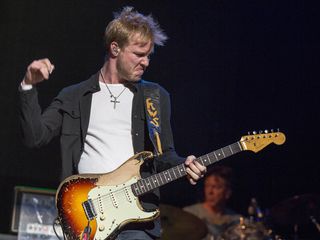
Boogie Man
“This is another Freddie King song – it’s one of the first numbers I wanted to do for this record. I love drummers and piano players, and on the original album that this track appeared on you’ve got Leon Russell playing piano. The piano carries the whole song, in a way; it’s got a greasy, almost hypnotic groove to it.
“Back in the day, the bluesmen had this thing where they were ladies’ men, and they’d be talking about, you know, how awesome they were. [Laughs] This is just one of those songs – ‘I’m the boogie man, no one can do it like I can.’ It’s that fun kind of boasting.
“For so many years, guys like BB, Albert Collins and Freddie King wouldn’t really play throughout their songs. They’d only play fills and then they’d solo. Live, I normally play rhythm guitar along with the fills and solos. So when we did this track, I did it like the guys did back in the day: I laid out and let the band carry the song, and then I did the fills and the solo, just like Freddie would have done.”
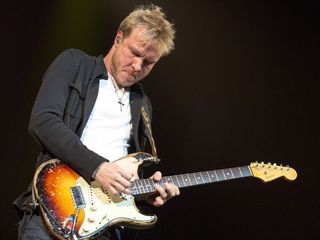
Looking Back
“The original was by Johnny ‘Guitar’ Watson, but we did a bit of a hybrid of that one and the version by John Mayall. Mayall changed a verse around a little bit, and I liked it – that part about the girl having blonde hair and wanting to follow her everywhere.
Johnny ‘Guitar’ Watson is one of those guys that a lot of fair-weather blues fans might not know, but he was truly an incredible guitar player. He was really innovative and was constantly reinventing himself to stay relevant as the music scene changed. I wanted to pay tribute to him.”
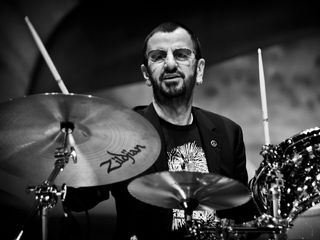
Cut You Loose
“There’s a few different versions of this song, but the one we’re paying tribute to is an acoustic version that Buddy Guy and Junior Wells did. On theirs, it was acoustic guitar with Junior Wells singing, and Buddy sang a unison harmony with him on the chorus.
“We electrified it a little bit – put on drums and electric bass, and I did a wah-wah solo. Noah’s singing it, and I’m doing the harmonies. We thought it sounded fun, and it was nice to have a different texture on the record because of the acoustic guitar.
“Ringo plays killer drums on it. People might not know this, but he’s a huge blues fan. He’s got a real appreciation for the music, just like everybody else who’s on this record.”
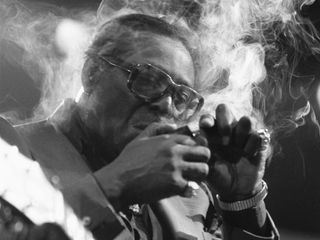
Born Under A Bad Sign
“It’s a very mainstream song, and because of that I almost didn’t put it on the record. Keb' Mo' sings and plays guitar on it, and he did such an amazing job that I just couldn’t not include it. The thing sounds too amazing. I’ve also got the Rebirth Brass Band on the track, and they’re killer.
“We’ve played this song every once in a while in our set. Actually, it’s the song you hear right before we walk out on stage. It’s our cue music; it kind of gets us ready to go out and put on a good show. In that regard, it’s a significant song to us.
“The groove is great, the piano parts are interesting – a very cool number all around.”
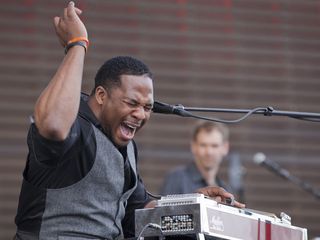
Still A Fool
“This one’s got Robert Randolph on it, and of course, he's incredible. The original was by Muddy Waters, one of my all-time favorites.
You know, it's interesting: One of the reasons why I didn’t sing lead vocals for the longest time was because I couldn’t accept the fact that I sounded like a kid and not like Muddy Waters, which is who I really wanted to sound like. Anything less than that was not good enough for me. So it took me a while to do this song. I had to wait for my voice to and catch up with the vibe of Muddy Waters; I had to feel confident about putting the whole thing across.
"I took the most creative liberties with this song than anything else on the record. The original was Muddy Waters and his guitar; on my version, we have Robert playing, and then we’ve got me playing through an Octavia and an analog delay. I’m playing an acoustic through a distorted amp, so it has a really cool sound. And the drums are hot-miked, too. Put all that together and you’ve got a pretty big departure from the original.
“We thought it was a great final song for the record because it’s the most ‘Kenny Wayne Shepherd’ track out of all the tunes. It sounds like what you might expect to hear on my next record, and so we thought it was good to end on this note and lead you into the future.”

Joe is a freelance journalist who has, over the past few decades, interviewed hundreds of guitarists for Guitar World, Guitar Player, MusicRadar and Classic Rock. He is also a former editor of Guitar World, contributing writer for Guitar Aficionado and VP of A&R for Island Records. He’s an enthusiastic guitarist, but he’s nowhere near the likes of the people he interviews. Surprisingly, his skills are more suited to the drums. If you need a drummer for your Beatles tribute band, look him up.

"Reggae is more freeform than the blues. But more important, reggae is for everyone": Bob Marley and the Wailers' Catch a Fire, track-by-track

“Part of a beautiful American tradition”: A music theory expert explains the country roots of Beyoncé’s Texas Hold ‘Em, and why it also owes a debt to the blues

"Reggae is more freeform than the blues. But more important, reggae is for everyone": Bob Marley and the Wailers' Catch a Fire, track-by-track

“Part of a beautiful American tradition”: A music theory expert explains the country roots of Beyoncé’s Texas Hold ‘Em, and why it also owes a debt to the blues
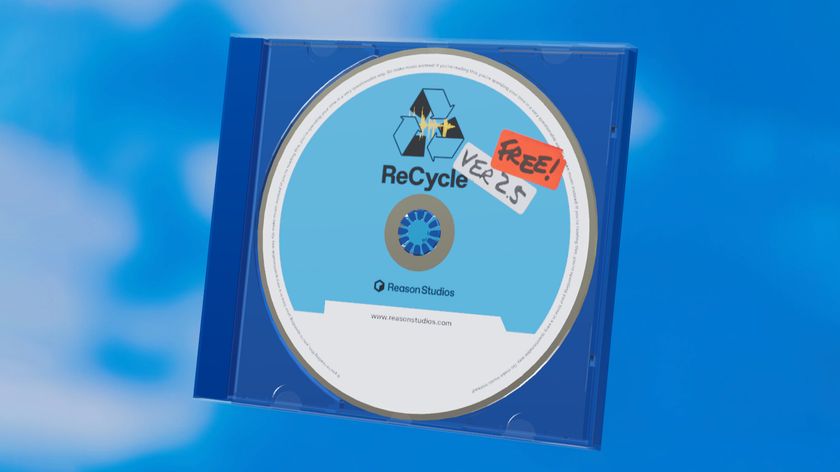
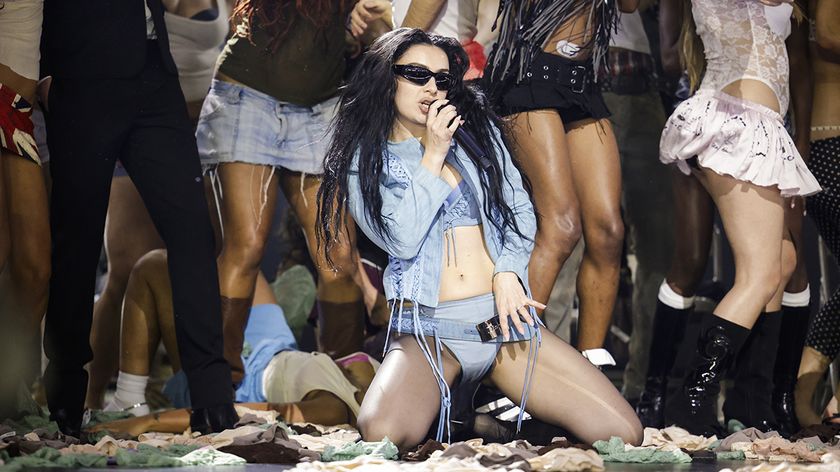
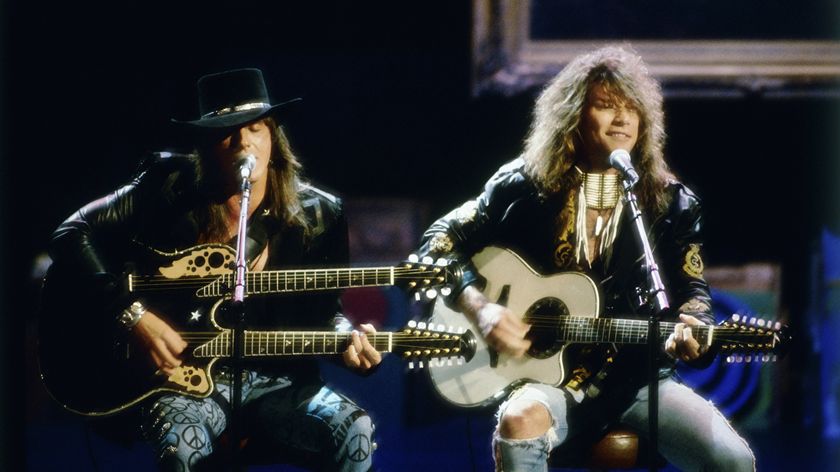
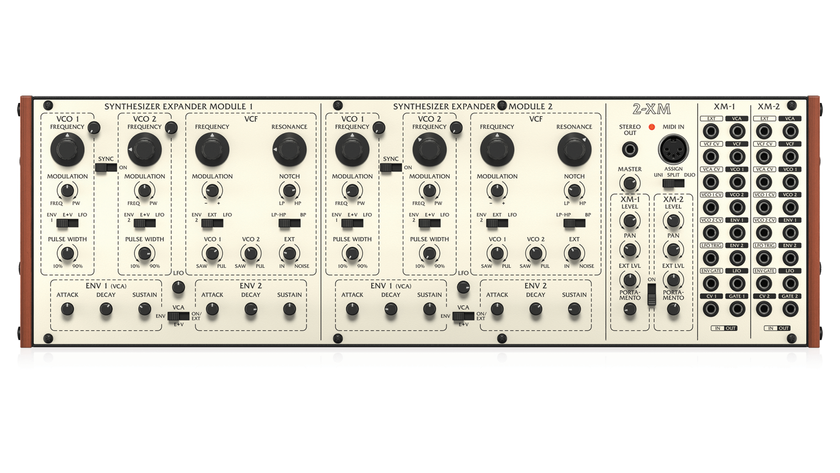
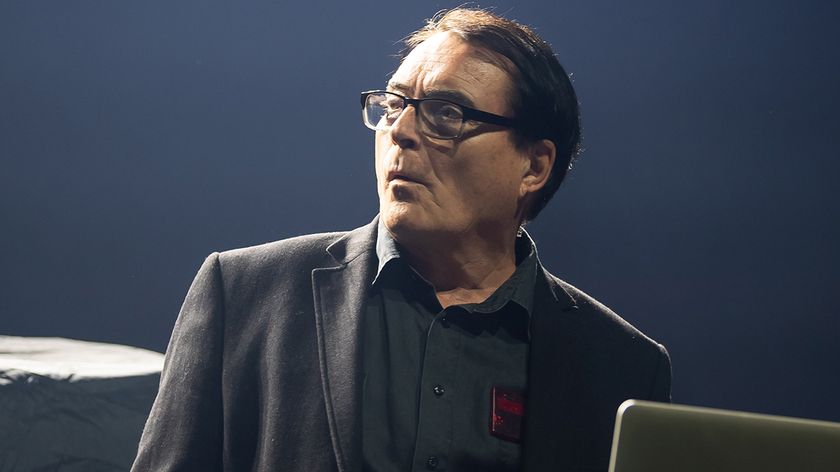
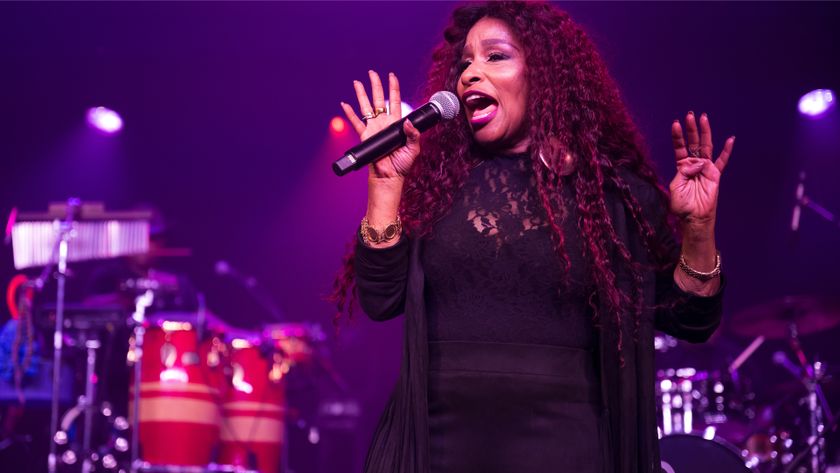
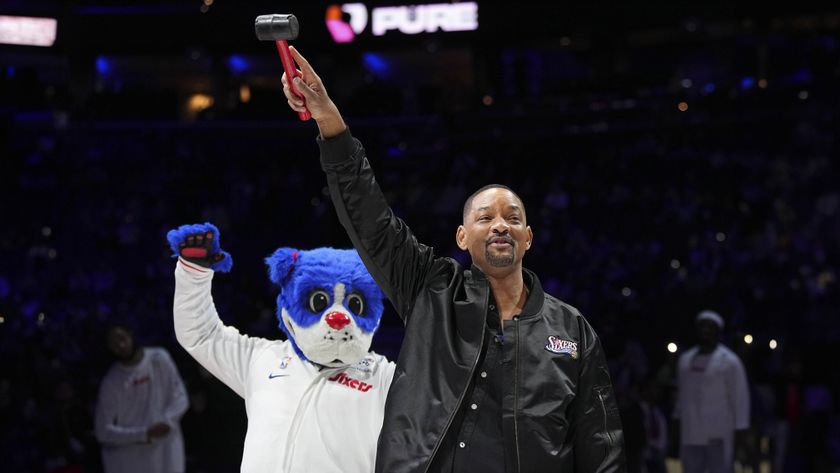


![Chris Hayes [left] wears a purple checked shirt and plays his 1957 Stratocaster in the studio; Michael J. Fox tears it up onstage as Marty McFly in the 1985 blockbuster Back To The Future.](https://cdn.mos.cms.futurecdn.net/nWZUSbFAwA6EqQdruLmXXh-840-80.jpg)